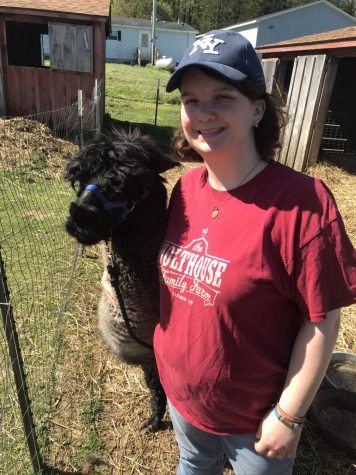Title IX office seeks to inform students, introduces new programs including bystander training and Brown Bag Lunch Conversations
Allegheny’s Title IX Office is taking steps to be more transparent and informative for students — promoting what their employees do and what role they play in Title IX processes.
Every Title IX case is different, and Gilly Ford, Title IX coordinator, explained that the length of the process varies on a case by case basis. The most important thing, Ford said, for students to understand is that the office is there to offer support and guidance
“When I first receive a report, I reach out to the complainant first to meet with them, review our Title IX policy and explain the choices they have,” Ford said. “But I always help them to know the resources and support that is available to them on campus.”
After an incident gets reported, it is then entered into the Department of Public Safety’s Crime and Fire Log. Ford said how soon it gets entered in the crime log depends on the situation and the nature of the incident. Once the report is sent to public safety, it is then entered into the crime log program according to Sergeant William Merchbaker, interim public safety director.
“Once the director sends over cases, we enter it in the crime logs,” Merchbaker said. “(All we really do) is type in the information and then it goes into the logs on the public safety website.”
Every report and situation varies, so the handling of every case is different.
“The way things get reported to you always depends on the situation,” Ford said. “We always report and handle these situations in the necessary ways. (For the crime logs), it may take a few days to report it depending on the amount of information we receive.”
Last semester’s protests about how Title IX situations and other situations, including racial bias cases, are reported to the campus, have brought some new ideas and processes to be considered by all offices involved, including the Title IX offices.
“We are in the process of doing the regular review of the student conduct policies and processes,” said April Thompson, dean of students. “The feedback from the protests along with suggestions from the student group formed following the protests has been sent to the teams reviewing the policies. Any additional feedback is welcome as well.”
Thompson added that Ford is the chairman of the committee reviewing Title IX and any feedback can be sent directly to her.
Ford and the Title IX office have scheduled events throughout the semester to help students learn more about Title IX, and to have a place where they might feel more comfortable talking about sexual assault and Title IX to their peers.
“I’m always available to talk about Title IX to interested students and organizations,” Ford said. “This semester we have also created some bystander training sessions, for students to be better prepared on what to do in a situation (where they are a bystander). Another new program is the peer educator program, where we seek to update students on Title IX, and students have the opportunity to talk to their peers about Title IX (instead of an adult), and they can be more comfortable. It’ll be students answering other students’ questions.”
The Title IX office has scheduled Brown Bag lunch conversations throughout the semester which are meant to provide “education but also a conversation.”
The open Bystander Training begins at 7:30 p.m. Thursday, Feb. 7, at a to be determined location, and a second one is scheduled for March 7.

Sara Holthouse is a senior from Panama, NY. This is her third year/final semester on staff, where she has previously served as news editor for the past...








